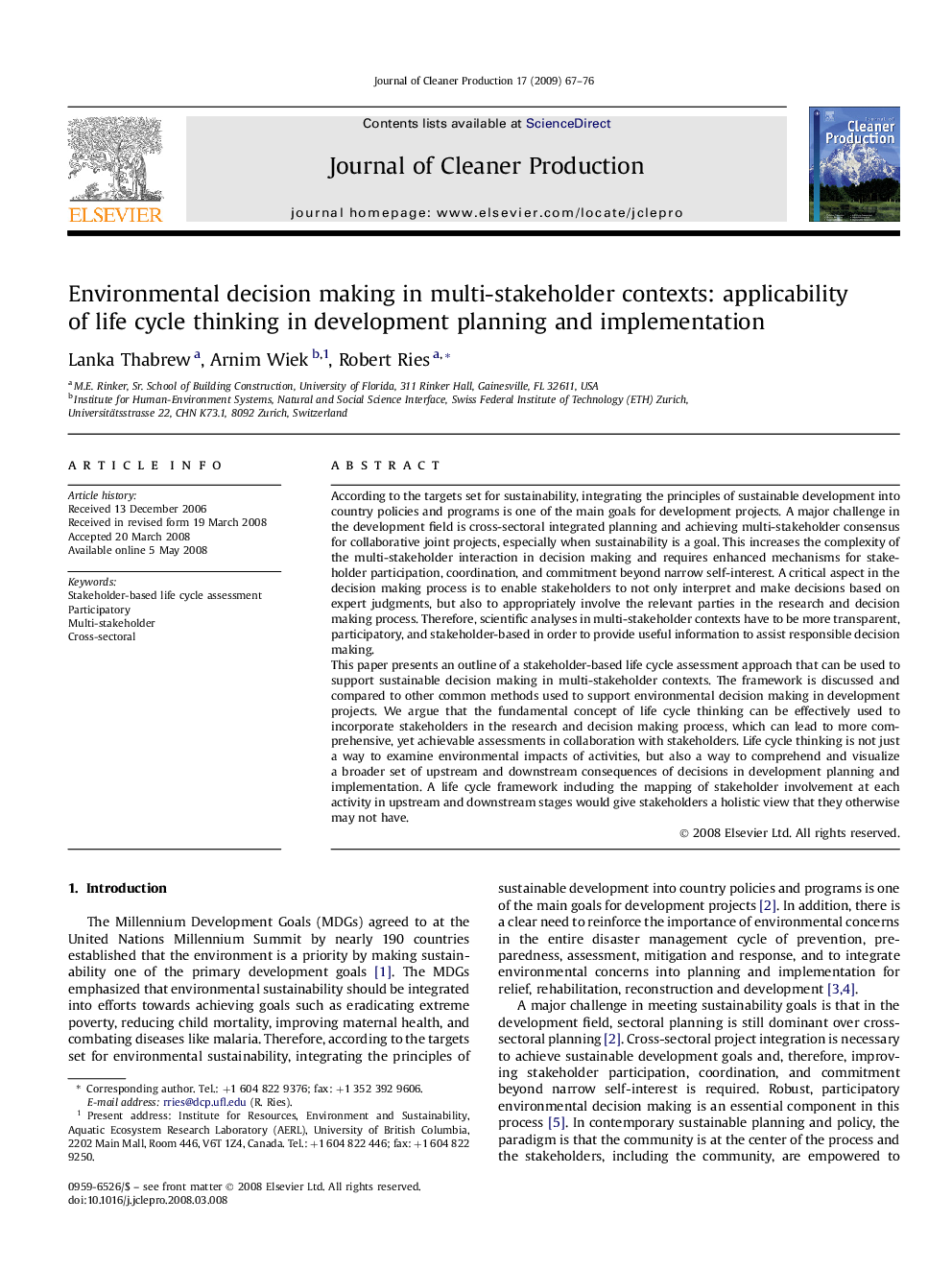| کد مقاله | کد نشریه | سال انتشار | مقاله انگلیسی | نسخه تمام متن |
|---|---|---|---|---|
| 1746482 | 1018099 | 2009 | 10 صفحه PDF | دانلود رایگان |

According to the targets set for sustainability, integrating the principles of sustainable development into country policies and programs is one of the main goals for development projects. A major challenge in the development field is cross-sectoral integrated planning and achieving multi-stakeholder consensus for collaborative joint projects, especially when sustainability is a goal. This increases the complexity of the multi-stakeholder interaction in decision making and requires enhanced mechanisms for stakeholder participation, coordination, and commitment beyond narrow self-interest. A critical aspect in the decision making process is to enable stakeholders to not only interpret and make decisions based on expert judgments, but also to appropriately involve the relevant parties in the research and decision making process. Therefore, scientific analyses in multi-stakeholder contexts have to be more transparent, participatory, and stakeholder-based in order to provide useful information to assist responsible decision making.This paper presents an outline of a stakeholder-based life cycle assessment approach that can be used to support sustainable decision making in multi-stakeholder contexts. The framework is discussed and compared to other common methods used to support environmental decision making in development projects. We argue that the fundamental concept of life cycle thinking can be effectively used to incorporate stakeholders in the research and decision making process, which can lead to more comprehensive, yet achievable assessments in collaboration with stakeholders. Life cycle thinking is not just a way to examine environmental impacts of activities, but also a way to comprehend and visualize a broader set of upstream and downstream consequences of decisions in development planning and implementation. A life cycle framework including the mapping of stakeholder involvement at each activity in upstream and downstream stages would give stakeholders a holistic view that they otherwise may not have.
Journal: Journal of Cleaner Production - Volume 17, Issue 1, January 2009, Pages 67–76